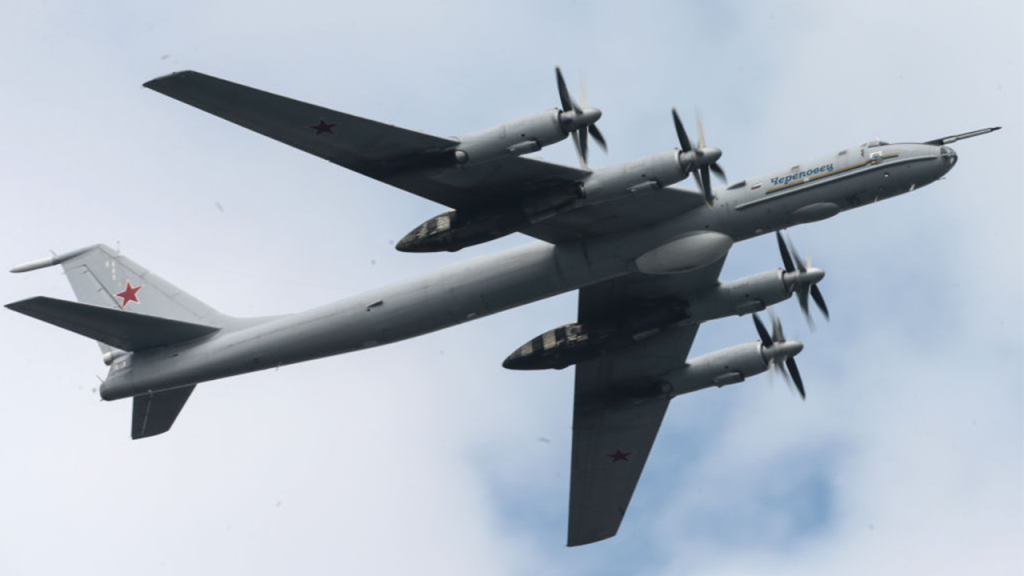NORAD, the North American Aerospace Defense Command, detected Russian military aircraft off the coast of Alaska on Sunday, which marked the fourth time since 9/11. The aircraft, two Russian IL-38 military planes, were operating in the Alaska Air Defense Identification Zone. However, they remained in international airspace and did not enter U.S. or Canadian sovereign airspace. NORAD stated that this kind of Russian activity in the Alaska ADIZ is regular and not considered a threat.
The U.S. and Canada, which make up NORAD, had also intercepted Russian military aircraft in three other incidents in the past week, all of which remained in international airspace and were not seen as a threat. The types of aircraft intercepted included a pair of TU-142s on Friday and two Russian IL-38 planes on Saturday. The ADIZ is a defined stretch of international airspace that requires the identification of all aircraft for national security purposes. NORAD mentioned that it utilizes a variety of defense measures, including satellites, ground-based and airborne radars, and fighter aircraft, to detect and track aircraft.
NORAD is prepared to employ different response options to defend North America in these situations. Earlier in the summer, NORAD intercepted two Russian and two Chinese bombers flying near Alaska for the first time that the two countries had been intercepted together. This interception highlights the ongoing tensions between the U.S. and Russia, as well as the need for continued vigilance in defending North American airspace. The recent presence of Russian military aircraft near Alaska has raised concerns among U.S. officials and the need for constant monitoring and response capabilities.
The recent incidents involving Russian military aircraft near Alaska come amid heightened tensions between the U.S. and Russia. President Putin has threatened war with NATO following these encounters. Despite these threats, the Russian aircraft remained in international airspace and did not pose an immediate threat to U.S. or Canadian territories. It is important for NORAD to continue monitoring and responding to these situations in order to ensure the safety and security of North American airspace.
The presence of Russian military aircraft near Alaska underscores the importance of organizations like NORAD in detecting and responding to potential threats. The use of a layered defense network, which includes satellites, radars, and fighter aircraft, allows NORAD to effectively monitor and track aircraft operating near North American airspace. By remaining vigilant and prepared to employ response options, NORAD plays a crucial role in defending against potential threats to national security.
As tensions between the U.S. and Russia persist, it is essential for NORAD to continue its efforts to protect North American airspace and respond to any potential threats. The recent incidents involving Russian military aircraft near Alaska serve as a reminder of the ongoing challenges and risks posed by adversarial countries. By staying alert and ready to act, NORAD can ensure the safety and security of North American airspace in the face of evolving threats and geopolitical dynamics.


